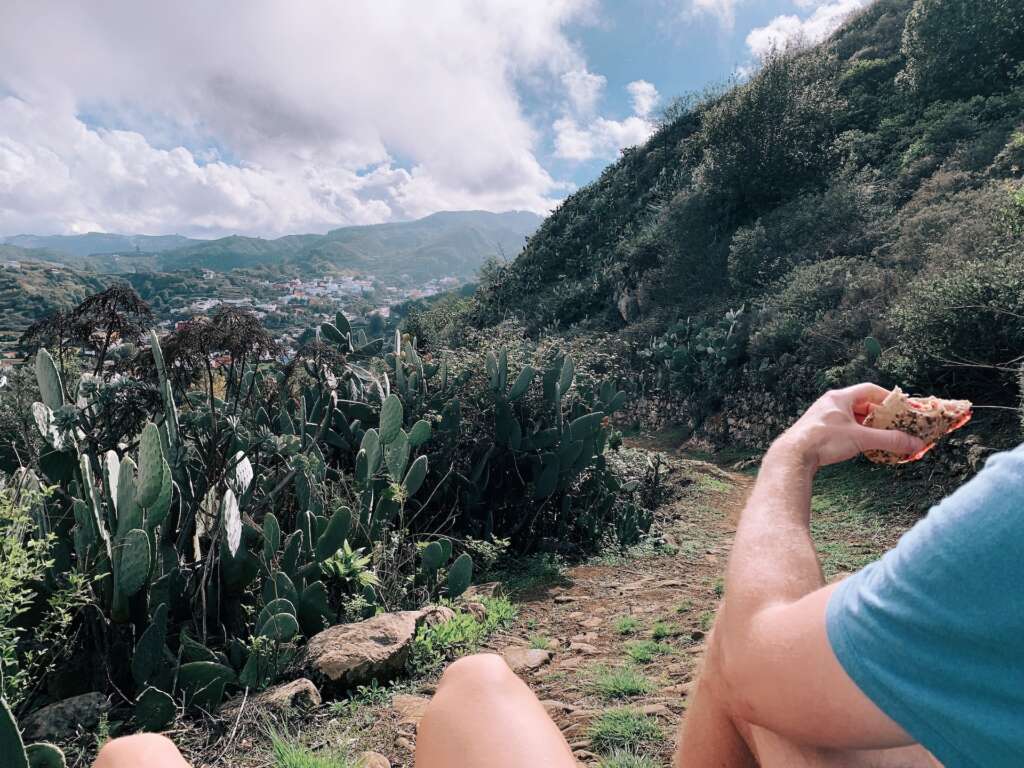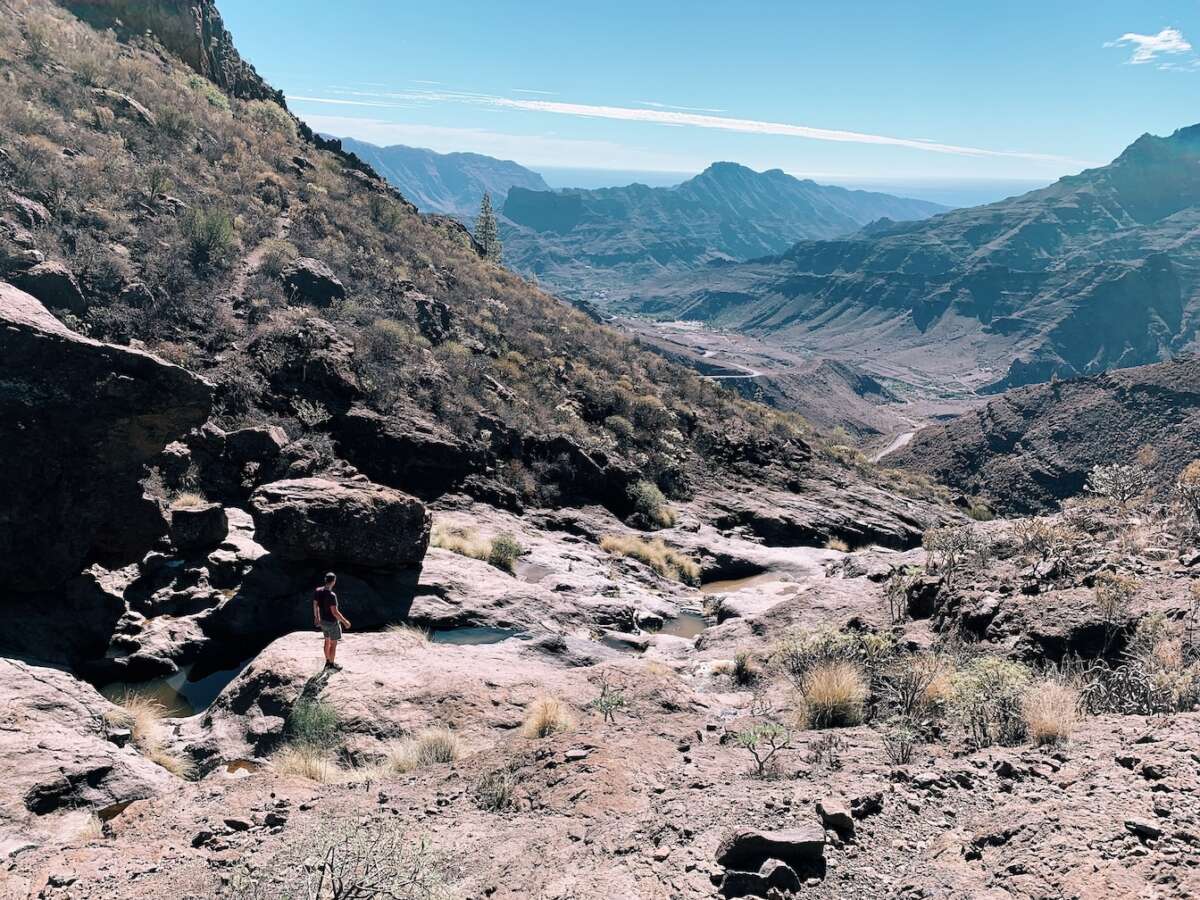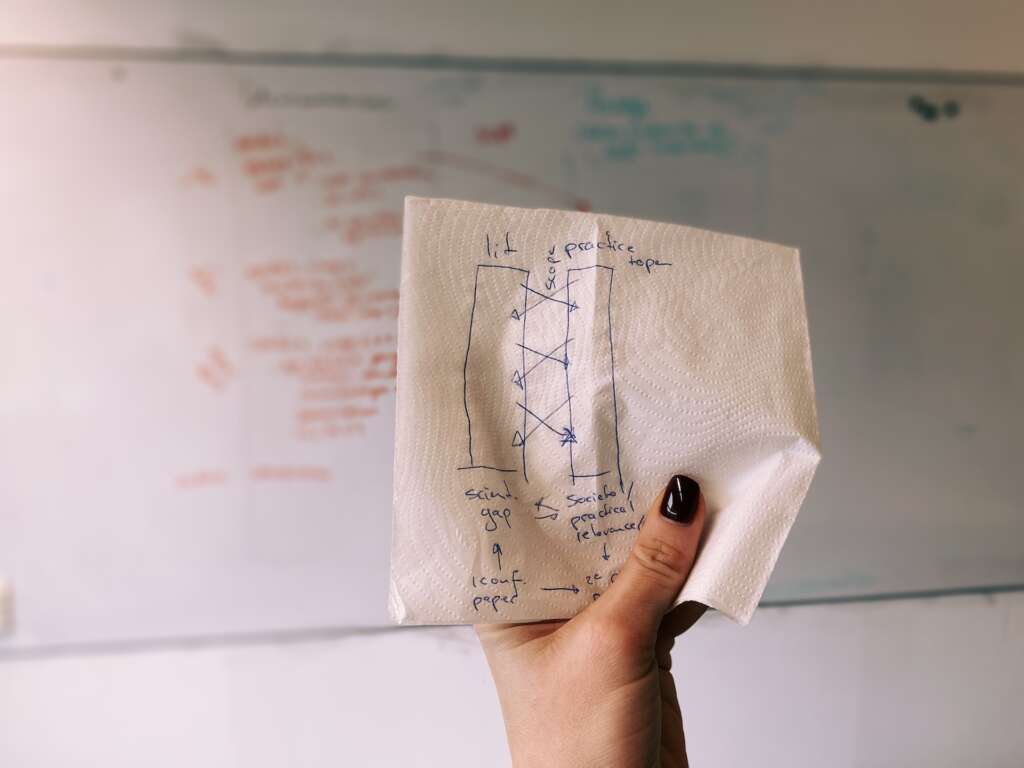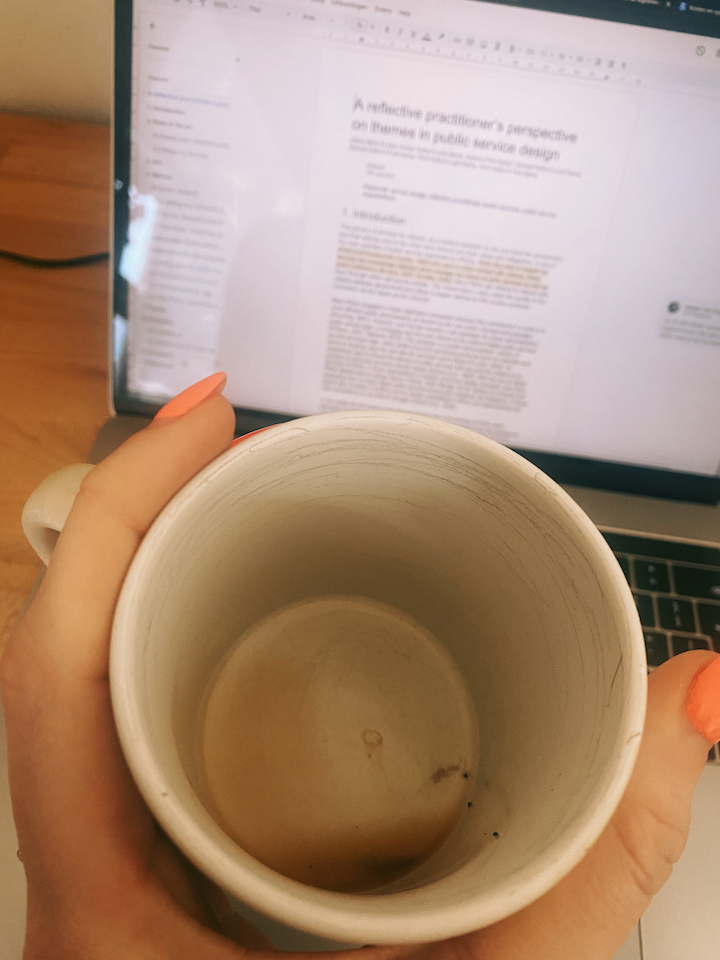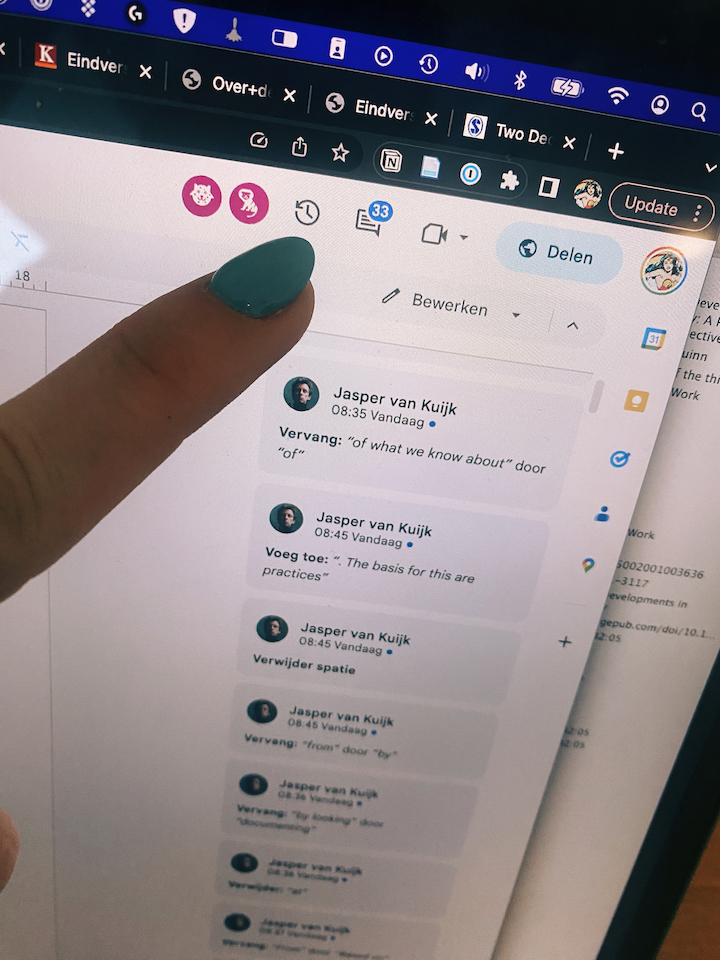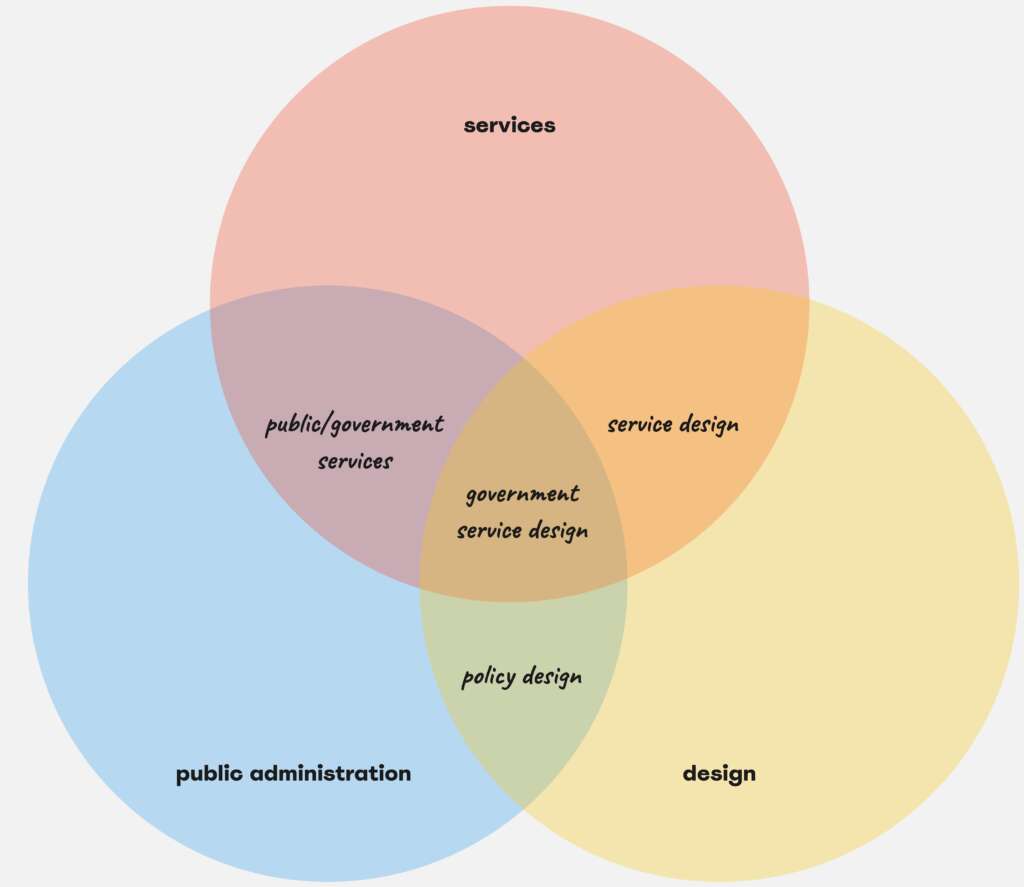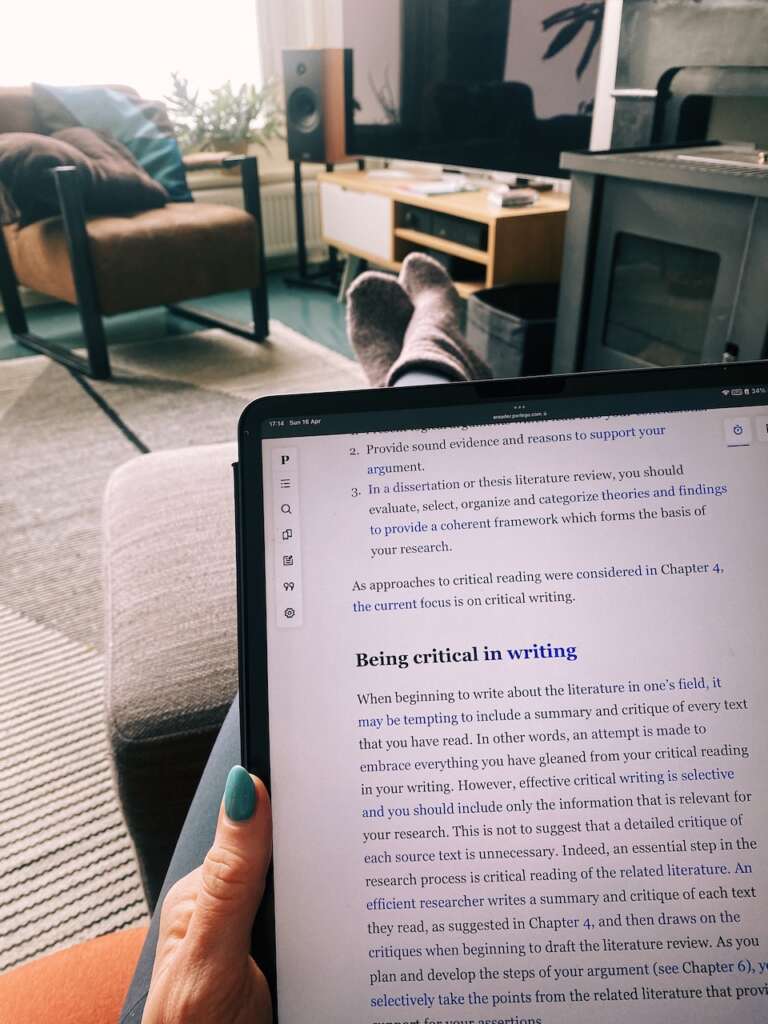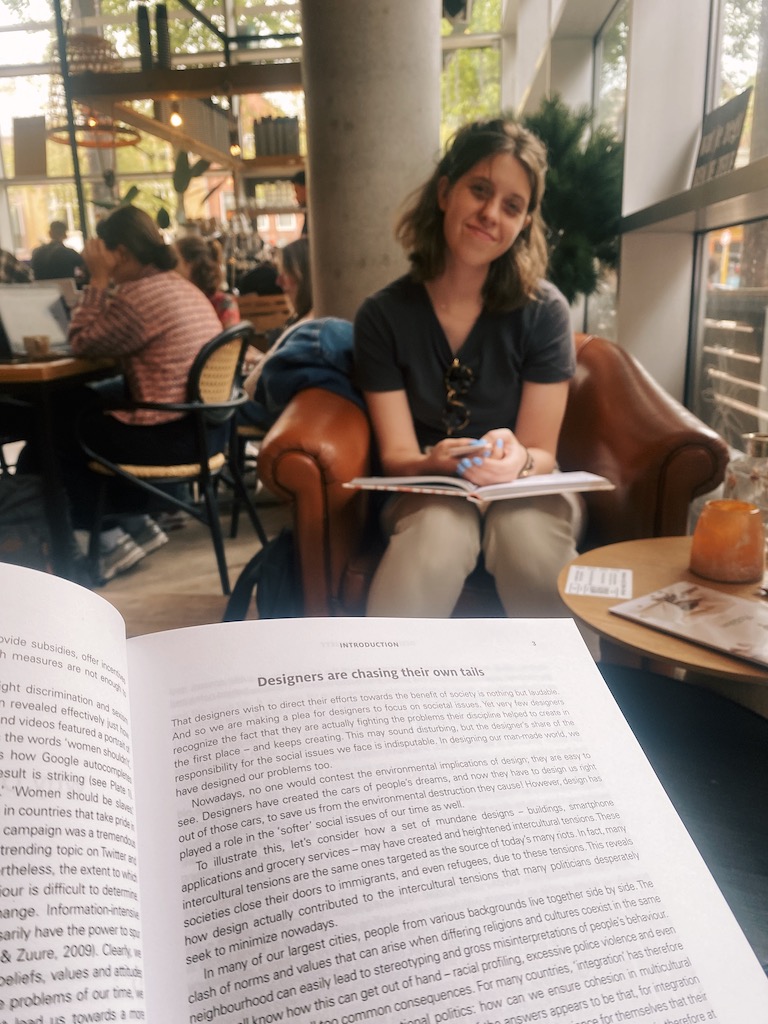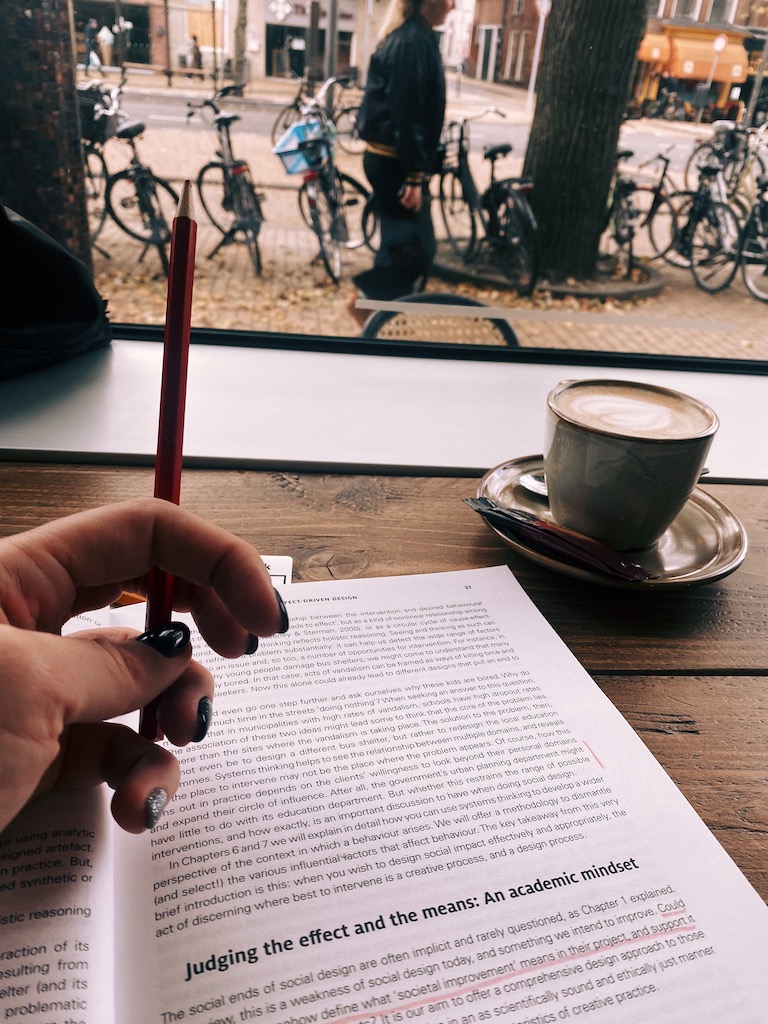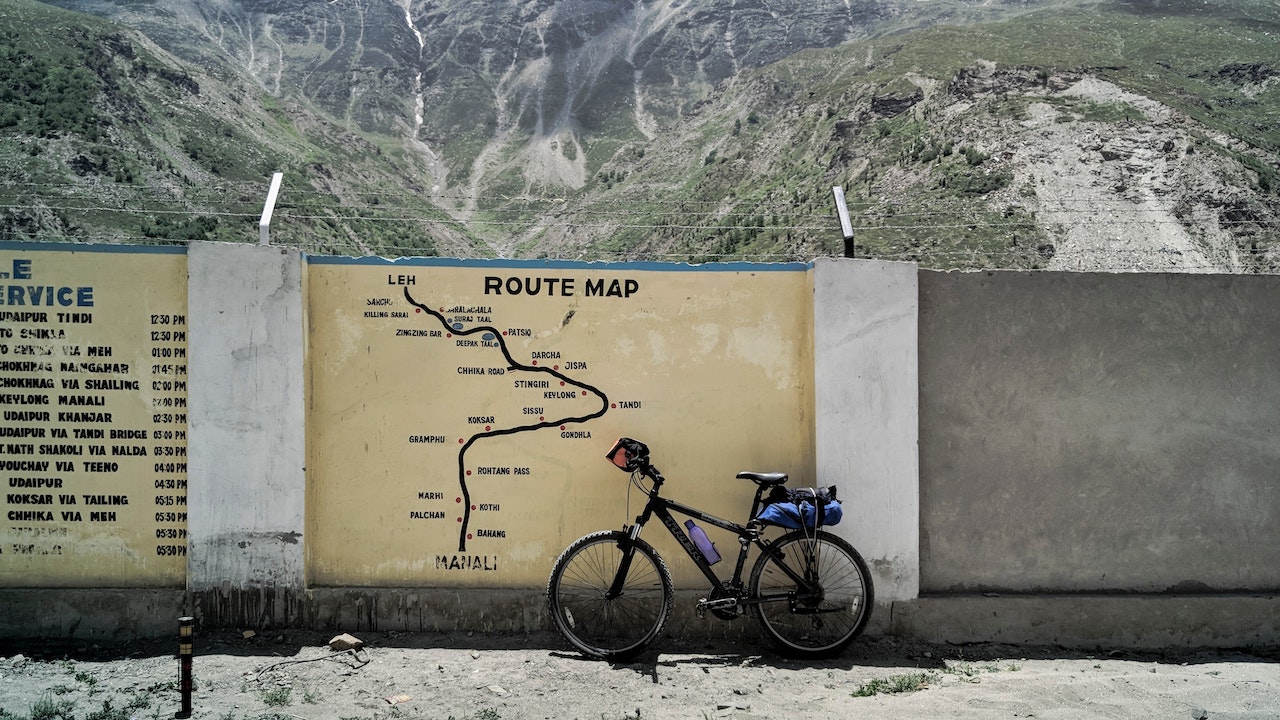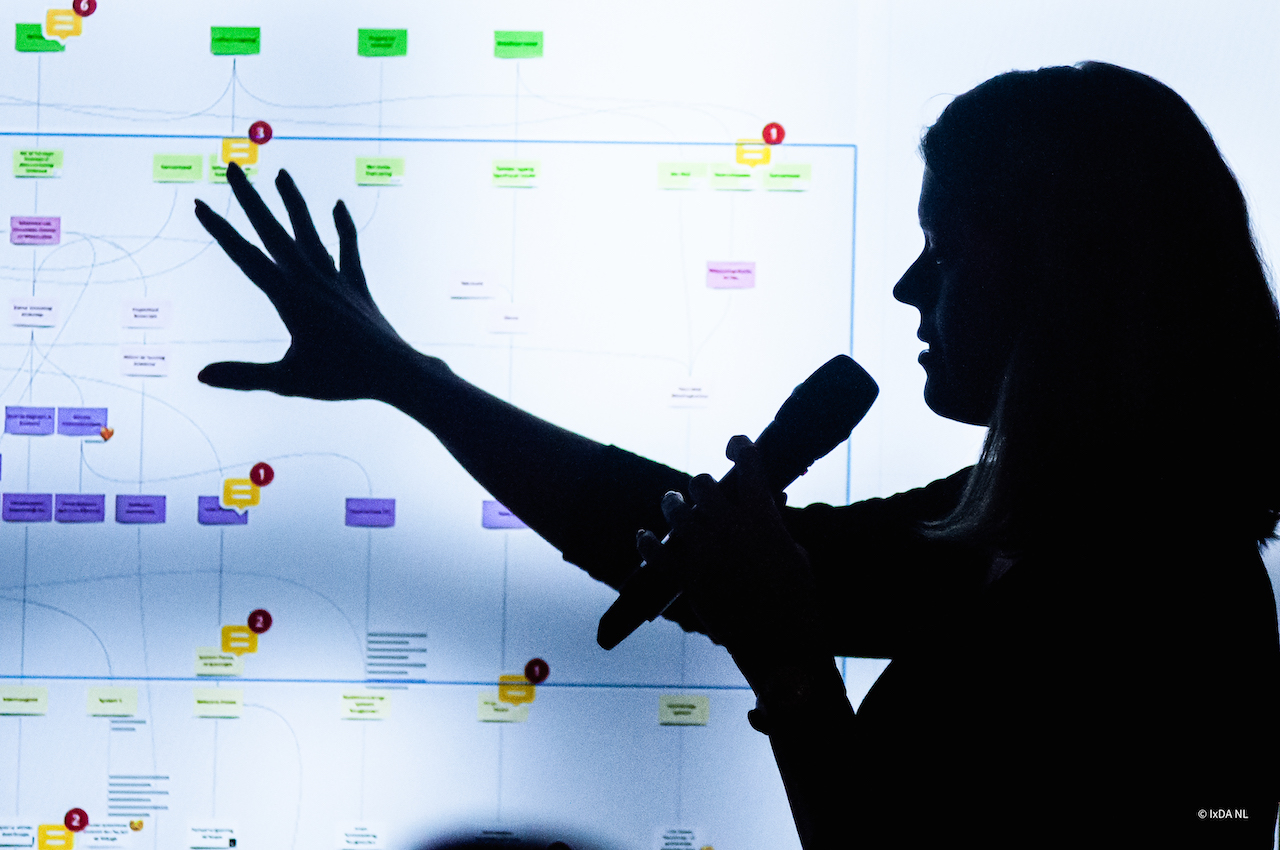By now my annual tradition: a retrospective blog, phd edition. Read also the one from 2023 or the 2022 preparation year.
Want an update in your mailbox every month about my research? Then subscribe to my newsletter.
January
The year got off to a flying start. I wrote a first draft of an article on a new conceptual framework for design in government. Much of the theoretical research I did in 2023 and the ideas I had got a place. A nice foundation for the rest of the research. I wrote these blogs about it:
- Fingers on the keyboard. About my writing process and what helpful tools I use.
- Full circle research. A hint of what will be in the article.
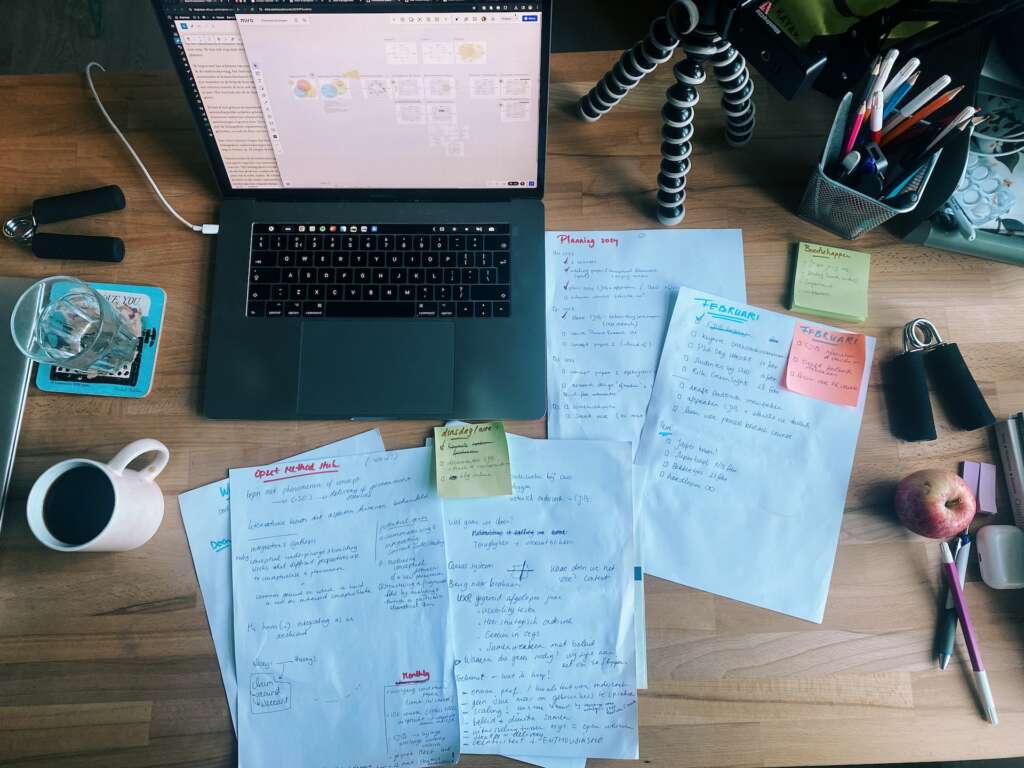
In December, I unexpectedly heard that I could start at the CJIB as early as January. They wanted to further facilitate the PhD and I could possibly do my practical case study there as well. There were many reasons why this went way too fast, but you shouldn’t let an opportunity slip away either. In the end, I started in February so I could spend the entire month of January writing undisturbed.
Spring
Until the summer, I took time to get to know the organization and observe the work. I also took a number of courses to learn how to tackle this practical part. Soon I was in the middle of a huge bucket of interesting data. So many fun and cool things were happening at CJIB. Together with my supervision team from the university, I decided: yes, this is a super cool case, this is where I’m going to do my practical research. In the fall, we even decided that ‘debt collection’ would become the entire capstone of the PhD. A possible follow-up case study will therefore also be about this topic but, for example, from the perspective of another organization.
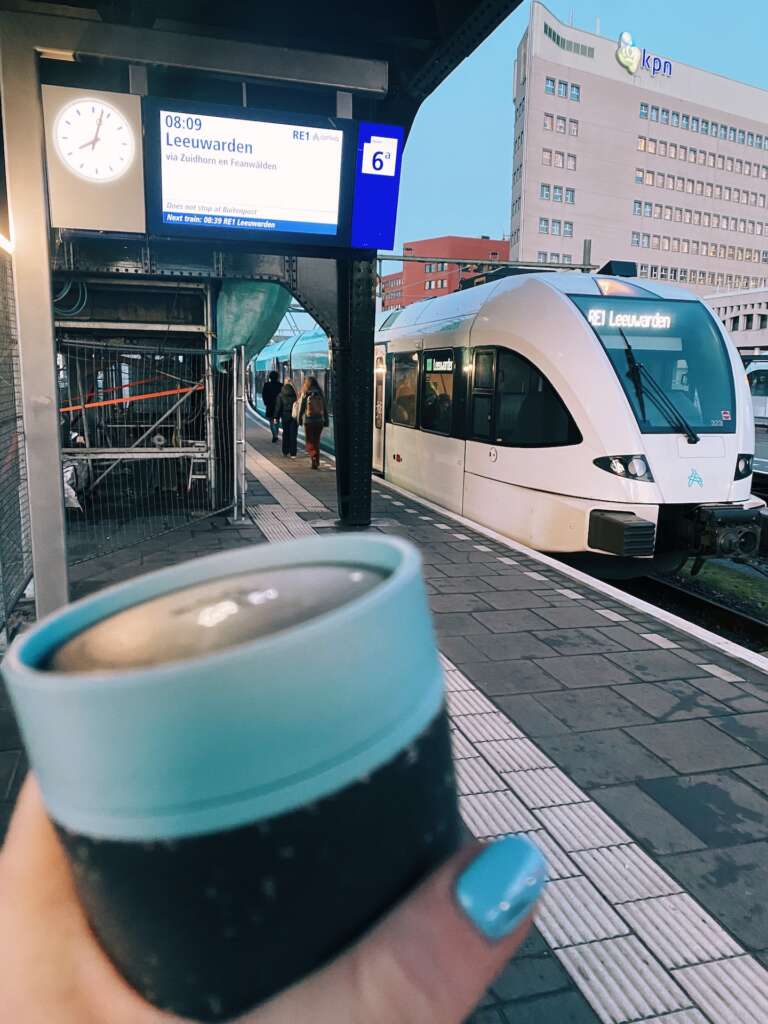
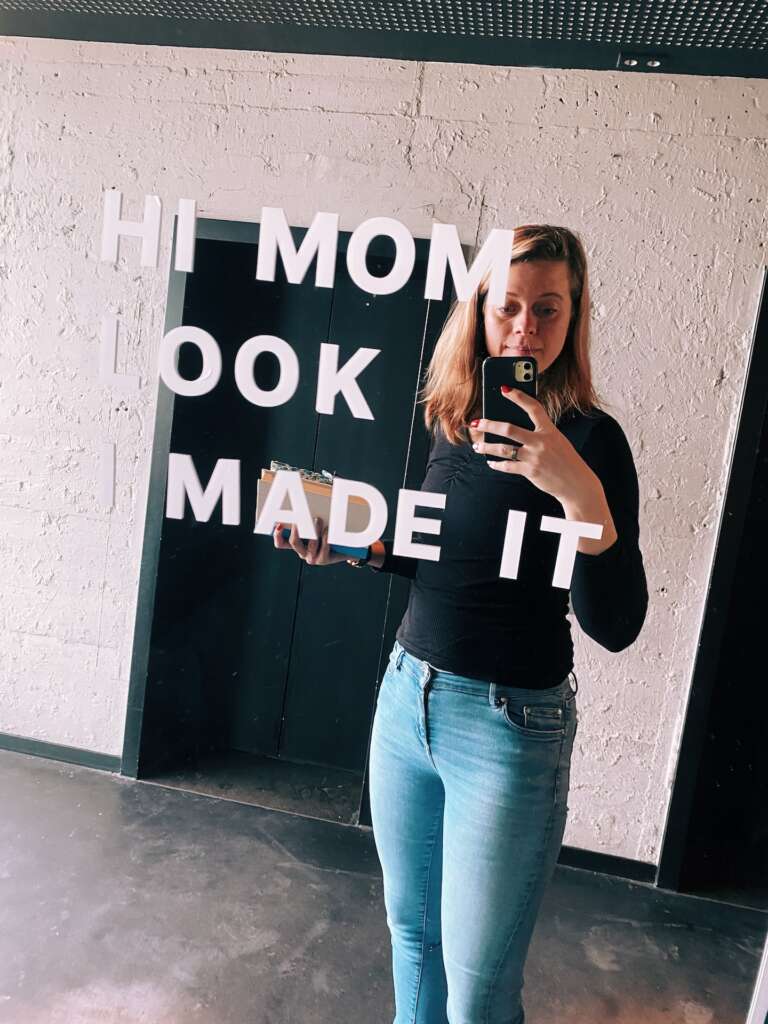
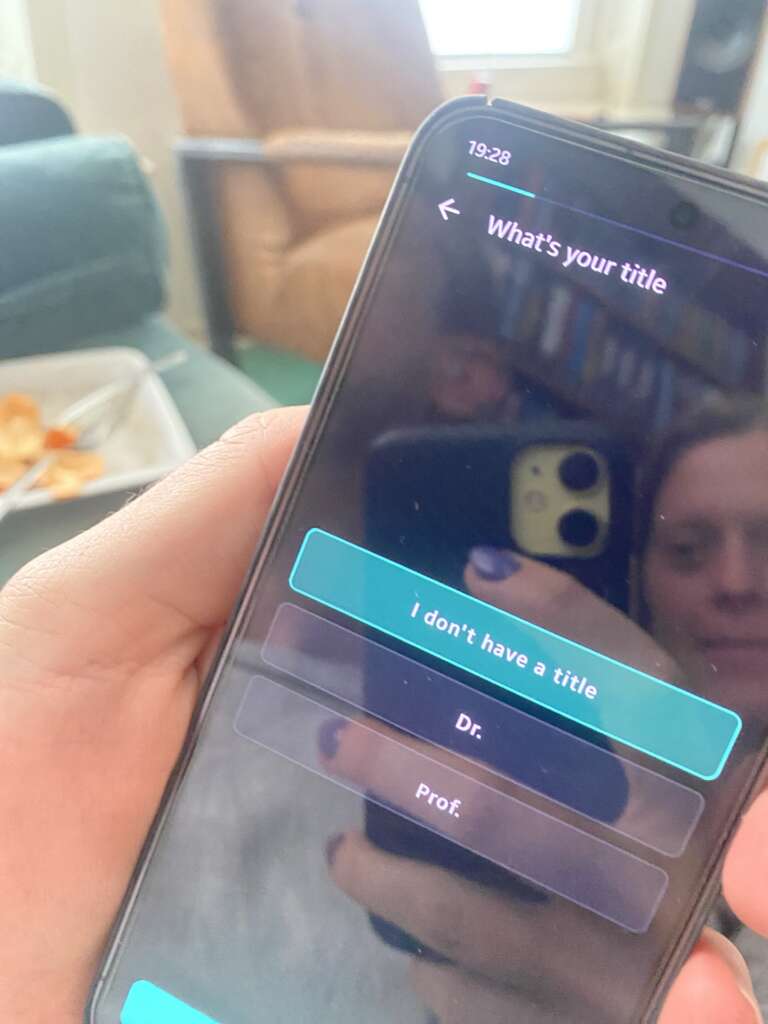
I wrote these blogs:
- Examining a process. On an analysis approach that focuses on change over time.
- Reframing leads to new solutions? A report of an intervention I organized with the team.
- Practice case known. All the ins & outs about the practice case.
- A day with a judicial officer. This title speaks for itself.
I also took time during this period to further hone my conceptual framework and rewrite the January draft after feedback (that’s how it goes). I continued to do a lot of reading and refined my research questions.
In April, a good friend of mine died suddenly. Deadlines that were in play then, I left them for what they were. Much of the research then went on ratio and discipline. On the other hand, it was super nice to get more and more established at CJIB and to be part of a nice team.
Summer
From the beginning, I wrote down in a journal almost everything I encountered at the CJIB. Along with a collection of interviews, I now had an awful lot of data and took a data-gathering stop during the summer. Courageously, I made a first attempt to structure and analyze everything. This was tough work and required a lot of discipline and perseverance. My summer vacation slipped away but I found a rhythm of data analysis in the morning, a good lunch and running break, and in the afternoon continuing to code data again.
You can read about the data analysis approach in the blog: How to understand what you see when you research.
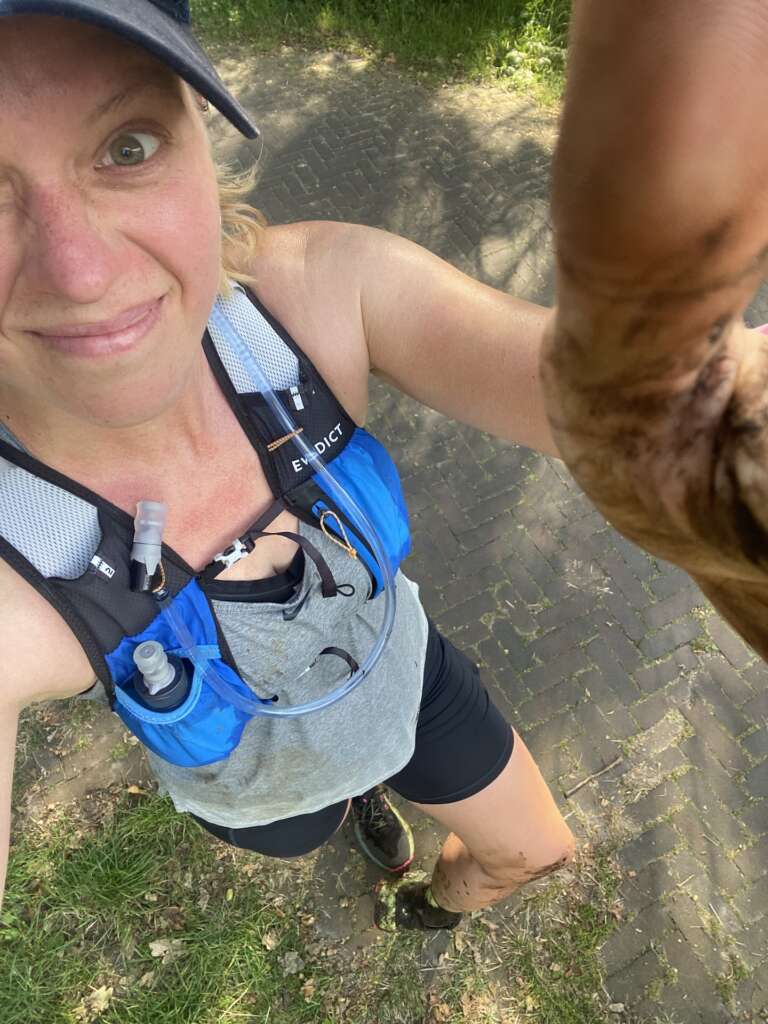
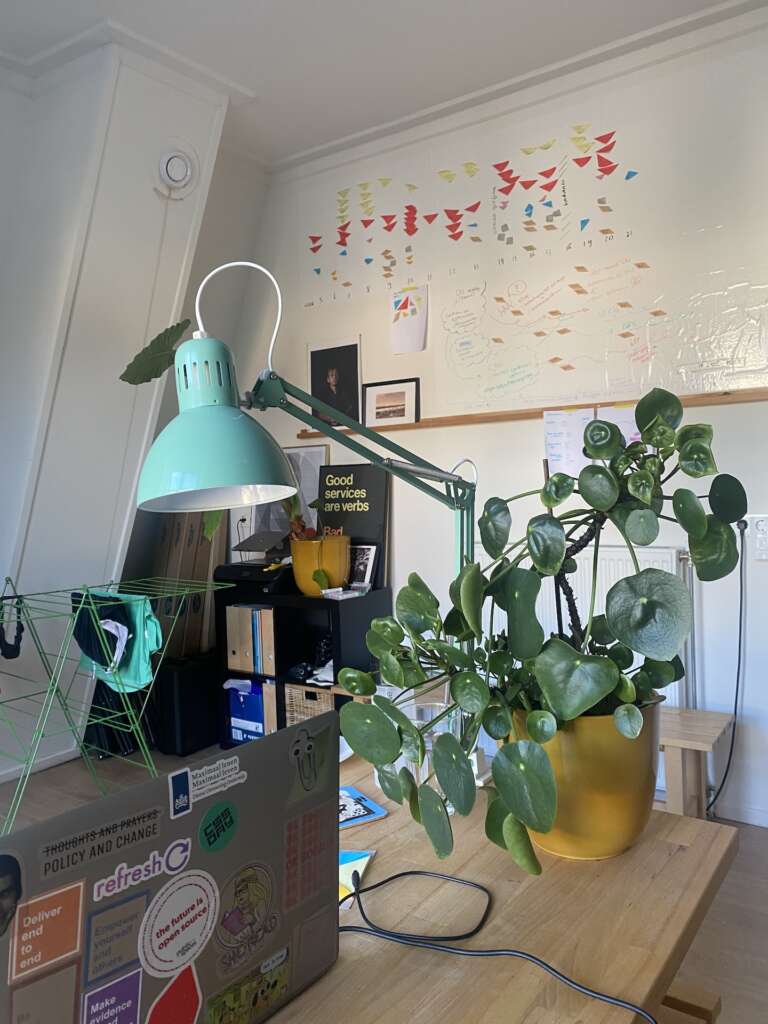
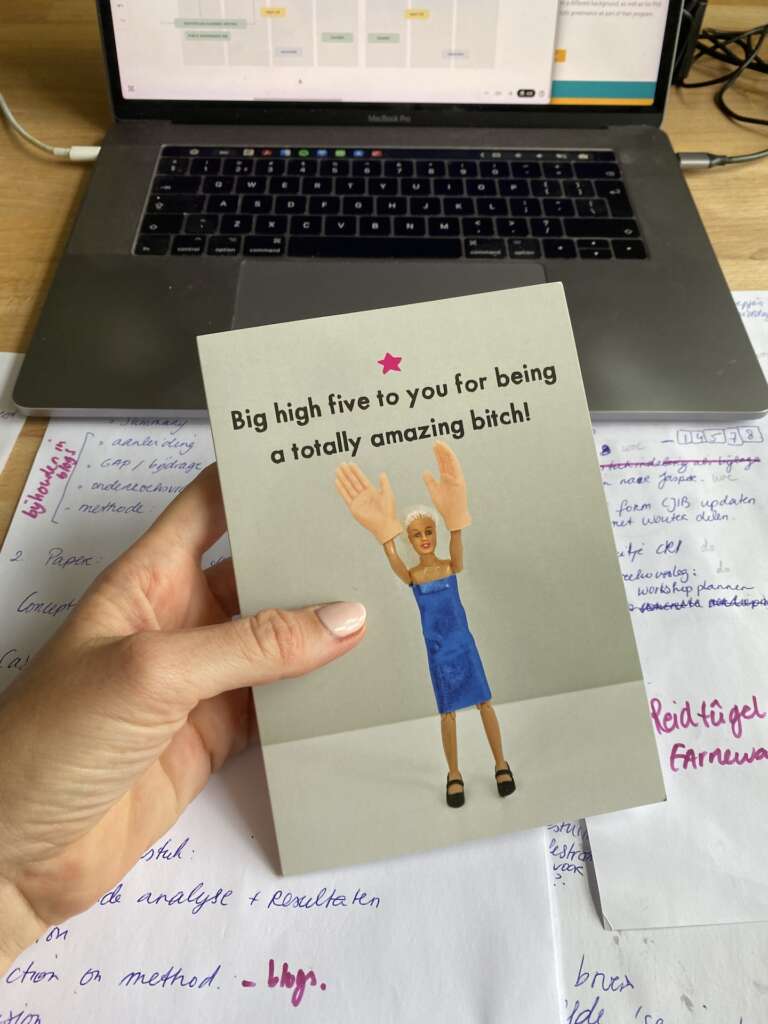
Autumn
Buffing through the summer did allow me to discuss initial insights with the team in September. Together we looked at how we could use these insights in the program. I gave a few presentations externally that helped me get my thoughts in focus.
For example, at an event by PONT together with Kustaw Bessems that I wrote this blog about: About Design in/From Public Administration. The presentation is on Youtube:
In the last weeks of the year, I finally went on vacation and worked with the team at the CJIB to concretely apply some of the principles and activities of human-centered design. I added these sessions to my data collection for a potential second scholarly publication on the case study.
On my blog, I began a series on this, which continues in 2025.
- What is human-centered design. About the principles and activities central to my research.
- Starting from the whole experience of your target audience. The first principle of human-centered design I highlight.
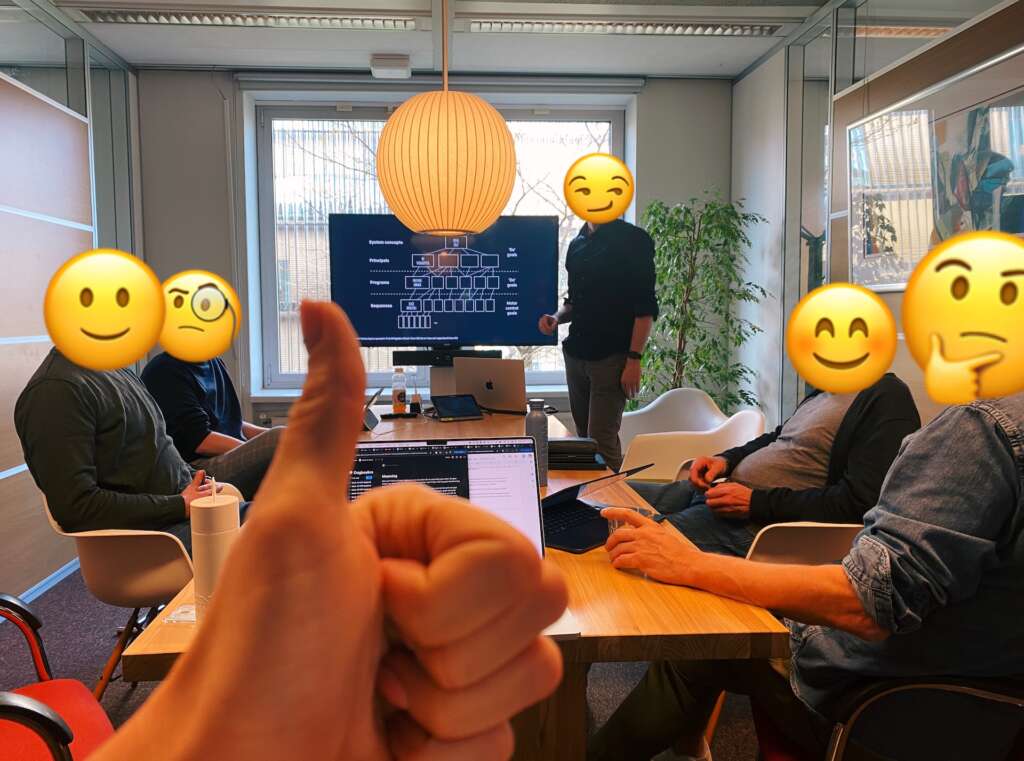
December
The year ended somewhat in a minor way. The first day after my vacation there was a rejection in the mail. Over the summer, I had sent a research proposal to a scientific journal for the first time. The chances of it being accepted were slim, but still, a rejection without a boo-boo is never fun.
In the same week, I discovered that I had to do some of my data analysis differently, and thus partially redo it. “That’s part of it and completely normal,” my supervisors assured me but still, an hour later, I was running pathetically in the rain with my soul under my arm.
You know in advance that a doctoral study is tough. Everyone tells you so. And somewhere maybe you shouldn’t quite know it beforehand either, because otherwise would you even start? While mountain climbing on vacation I heard from my GPS that the trail was 90m to my left and I just thought “&*#&$ which left then?” It took me an hour to cover 1km but then the view was stunning, see the photo at the beginning of this blog. I just keep telling myself it’s the same with a PhD.
Well, we’re over halfway there. Hopefully, in 2025, the trail will be a little more viewable and less steep. And, good resolution, I’m going to enjoy the view a little more often with a snack.
